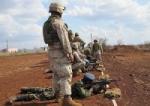I think you are overestimating two things - the near-term vitality of the Iraqi economy and its negative effects upon Iran.
The Iraqi economy has been shredded not just by the past five years but also by the 30 years of Ba'athist corruption, war with Iran, and the ruinous sanctions regime. Its literacy rate was below 50% in 2003, and much of the remaining educated and professional class has fled. Their return will require both peace and a government that they find acceptable - since many of these are Sunni expelled by Shi'i religiously-based party militia, a government dominated by the same may not be. Even given peace in the region, the Iraqi economy for the next 10-15 years will be utterly dependent on the oil sector and American aid.
I think also that you underestimate the capacity of Iran to economically engage with a peaceful Iraq. All the major Shi'i and Kurdish parties have extensive ties with Iran and it has already become the principle import conduit for southern Iraq. Anecdotal reports indicate that Iranian manufactures and Chinese imports routed through Iran dominate Iraqi markets in the south. This flow, along with the enormous pilgrim trade to Najaf and Karbala, will integrate southern Iraq into Iran's economic orbit in the coming years. What do you think persuaded Iraq's southern tribes to convert to Shi'ism in the 1800s, anyways? A peaceful Iraq dominated by Iran-friendly parties will only seek closer ties to its permanent neighbor.













 ) for the Arab and the strength with which that feeling is returned by the Arabs. That and powerful Iraqi xenophobia mitigate quite strongly against any real win for Iran. Recall that Iraqi Shia fought well against Iran in the Gulf War. They will cooperate as long as it suits but the likelihood of bedding down together is I believe remote.
) for the Arab and the strength with which that feeling is returned by the Arabs. That and powerful Iraqi xenophobia mitigate quite strongly against any real win for Iran. Recall that Iraqi Shia fought well against Iran in the Gulf War. They will cooperate as long as it suits but the likelihood of bedding down together is I believe remote.

Bookmarks